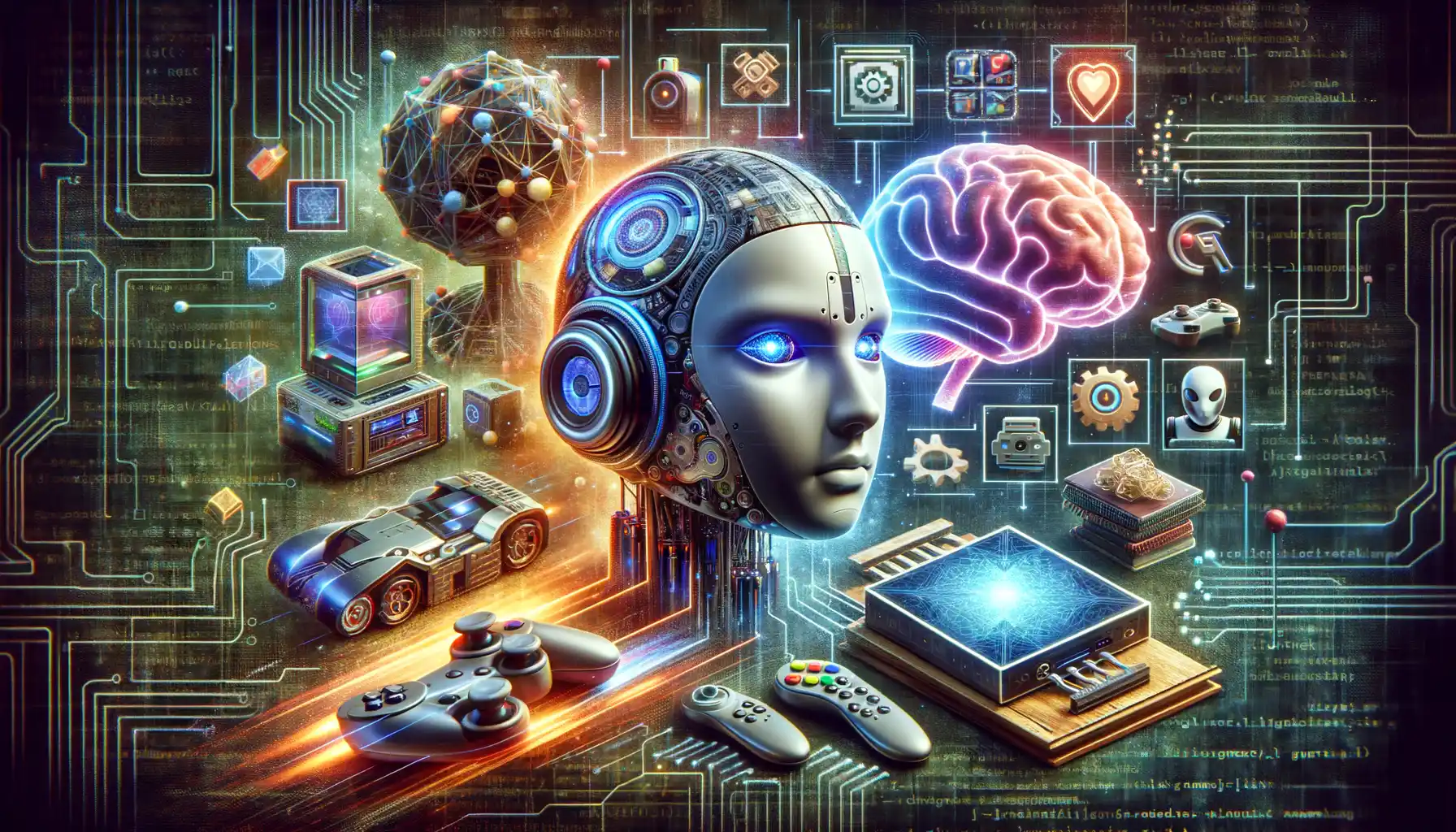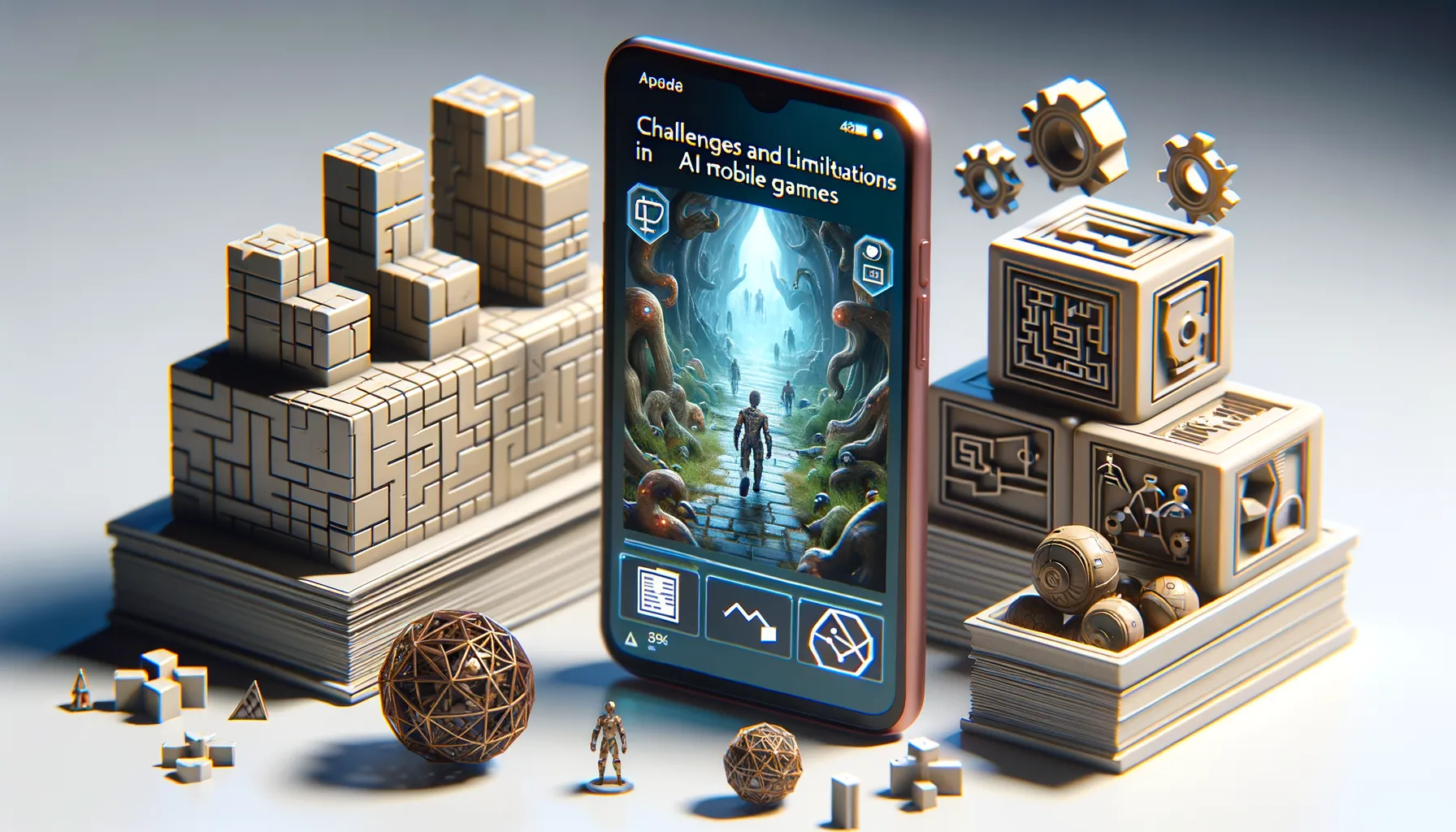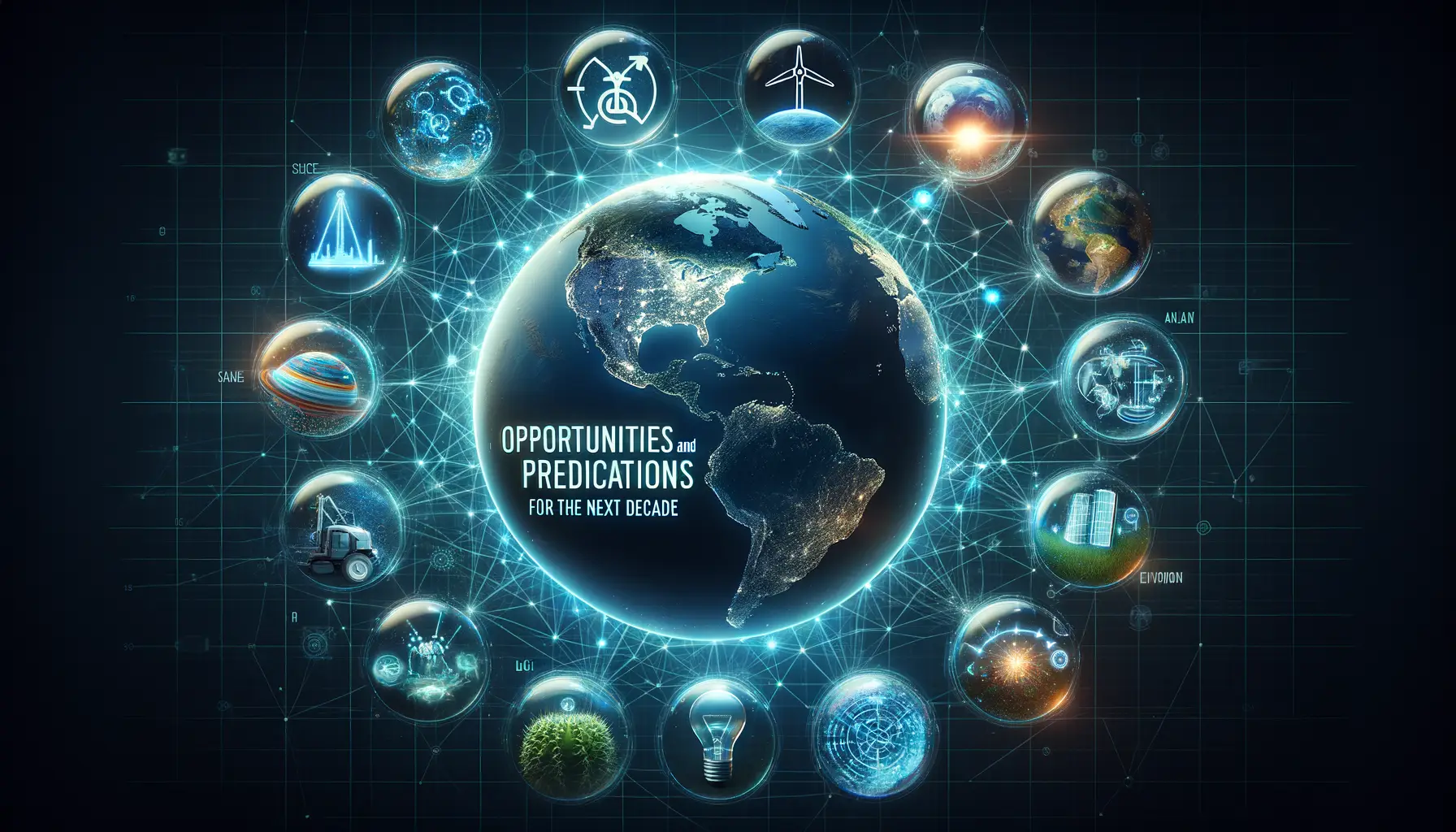Understanding the Current Landscape of AI in Mobile Gaming
The AI Revolution: Shaping Mobile Gaming Today
Picture this: you’re engrossed in a mobile game, battling a ruthless enemy or solving a mind-bending puzzle. Suddenly, the gameplay adapts like it knows you better than you know yourself. That’s not magic—it’s the work of **AI-powered algorithms**, weaving their brilliance into the fabric of mobile gaming.
Today’s AI in gaming is no longer confined to predictable NPCs; it’s a game-changing disruptor. For example, **procedural content generation** ensures every playthrough feels fresh, dynamically creating levels or quests tailored to your skillset. And let’s not forget **hyper-personalized experiences**—AI tracks how you play, what grabs your attention, and even when you tend to give up. The result? Games that feel like they’re alive.
- Dynamic difficulty adjustment: AI fine-tunes challenges to keep you engaged without frustration.
- Emotion-aware interaction: Games like “Simulacra” tap into sentiment recognition, reacting to your input on a startlingly human level.
But it’s not just about making games harder, cooler, or smarter. **AI-fueled analytics** also empower developers, delivering insights on player behavior that shape future updates or even entire sequels. It’s a delicate dance—one where technology doesn’t just enhance, but elevates storytelling itself.
Key Innovations Influencing AI Integration in Gaming

The Rise of Adaptive AI: Games That Learn You
Imagine a game that feels like it was tailor-made for you. That’s not a fantasy anymore, thanks to the rise of adaptive AI. This tech takes personalization to a whole new level, studying how you play and evolving in real time. Think about an RPG where the non-playable characters (NPCs) stop feeling like robotic placeholders and start reacting to you like real, unpredictable humans. Missed a quest? They might call you out on it later. Often avoid battles? They could adjust their strategies to force you into direct conflict.
This level of dynamism creates gameplay that feels intimate, alive, and totally unique to each player. Mobile games like Clash Royale have already begun scratching the surface with predictive matchmaking, but imagine this on steroids—multiplayer games that adjust difficulty based on your team’s chemistry or single-player adventures that morph their story arcs depending on your mood.
Procedural Content Generation: Infinite Worlds, One App
Ever feel like mobile games get boring after a while? Procedural content generation powered by AI algorithms is here to fix that. Picture this: no more repetitive levels! Instead, your favorite platformer or puzzle game can now churn out endless, fresh challenges.
Take a look at some ways developers are leveraging this mind-blowing tech:
- Dynamic maps: Open-world games that generate new terrains every time you log in.
- Music-driven gameplay: AI composes soundtracks on-the-go, matching the mood of your progress.
- Story-building: Branching narratives shift organically in reaction to your choices.
Games like Minecraft and No Man’s Sky have set the stage, but future mobile titles will take it further with bite-sized worlds you can carry in your pocket. It’s infinite creativity in the palm of your hand!
Trends Shaping the Future of AI in Mobile Gaming

The Rise of Personalized Gaming Experiences
Imagine a game that knows you better than your best friend. That’s where AI is headed in mobile gaming! As machine learning algorithms evolve, developers are creating games that adapt to *you*. Whether you’re crushing candies or strategizing battles, AI tracks your playstyle to craft gameplay tailored to your preferences. Are you the type who loves endless challenges? Your game might throw in tougher levels. Prefer casual fun? Expect more chill, rewarding moments.
But it doesn’t stop there—*AI-powered NPCs* (non-playable characters) are leveling up too. Forget the stale, predictable dialogue. Today’s NPCs can analyze player decisions and respond with realistic emotions, making them feel eerily human. It’s like chatting with an old friend—or a cunning rival—inside your phone!
- Dynamic Storylines: AI builds narratives that shift based on your choices, turning every playthrough into a unique adventure.
- Voice Recognition: Games even listen to you. (Yes, for real!) Give commands, ask questions, and watch the story unfold hands-free.
AI Meets Augmented Reality: A Game-Changer
Picture this: you’re walking through your neighborhood, battling dragons lurking in augmented reality (AR). Thanks to AI, AR has evolved beyond gimmicks into immersive, *location-aware* experiences. Mobile games are blending the digital world with the real one in astonishingly creative ways.
AI doesn’t just scatter virtual objects randomly. It maps environments, adjusting difficulty based on where you are. Imagine spotting a rare treasure at a park—but only if you visit after sunset. It’s interactive magic, seamlessly connecting physical spaces to gaming.
Even smarter? AI-driven AR now uses *object recognition*. Point your camera at a tree, and voilà—it transforms into an enchanted gateway to your next quest. The fusion of creativity and tech here is enough to make anyone’s jaw drop.
Challenges and Limitations in AI-Driven Mobile Games

Where AI Hits the Wall in Mobile Gaming
AI might feel like magic in our pockets, but even magic has its limits. The dream of an endlessly smart, adaptive game isn’t without a few hiccups. Let’s be real: there are challenges under the shiny hood of AI-driven mobile games that players don’t always see.
First off, there’s the issue of **processing power**. Mobile devices, even the latest and greatest ones, have their limits. Unlike consoles or PC gaming rigs, your smartphone wasn’t built to host a supercomputer. This means developers must constantly balance how “smart” a game’s AI can be without turning your phone into a pocket heater. It’s like trying to park a limo in a compact car space — something’s gotta give.
Then there are the **ethical dilemmas**. Sure, AI can adapt to your playing style, but where does adaptation end and manipulation begin? Imagine an AI that notices your weaknesses in gameplay and exploits them strategically to push in-app purchases. Sounds a little sinister, doesn’t it?
- AI needs data to improve—but how much personal data are you comfortable sharing?
- Gaming environments designed by AI risk feeling “too perfect,” losing a sense of human creativity.
The ambition is huge, but so are the growing pains.
Opportunities and Predictions for the Next Decade

A Gateway to Boundless Immersion
The next decade promises to crack open a treasure chest of opportunities for AI in mobile gaming. Picture this: a game that doesn’t just learn your strategies but evolves its entire universe based on your personal choices. That’s the dream we’re racing toward. Through advancements like real-time neural networks and predictive analytics, developers will craft more adaptive gameplay, where games feel less like software and more like living, breathing worlds tailored to each player.
Think of games where NPCs (non-playable characters) don’t just deliver repetitive lines but remember your actions, hold grudges, or even form alliances with you. For instance, imagine building a relationship with an AI companion who remembers every battle you’ve fought side-by-side—now that’s emotional investment!
Expect these standout developments:
- Custom-built narratives: AI-generated stories that adapt dynamically to your gameplay style.
- Seamless cross-platform gaming: Start a mission on your phone, and watch it continue, uninterrupted, in VR or AR.
Emerging Economies and AI-Driven Monetization
Here’s a curveball: AI isn’t just reshaping gameplay—it’s rewriting the rules of in-game economies. We’re on the cusp of decentralized marketplaces where AI could play the role of an economic advisor, tracking market trends and crafting personalized deals for players. Virtual goods might become smarter investments, retaining value in expansive metaverses.
Meanwhile, emerging markets in regions like Southeast Asia and Africa will have unprecedented access to rich, AI-enhanced games due to improved smartphone technology and cheaper internet. Developers will unlock untapped potential, tailoring gameplay experiences to local cultures and preferences. The result? A global gaming renaissance where everything feels both personal and universal.
Brace yourself; the future of AI in mobile gaming is more than innovation—it’s a total reinvention of how we play, connect, and even spend. Ready to dive in?
